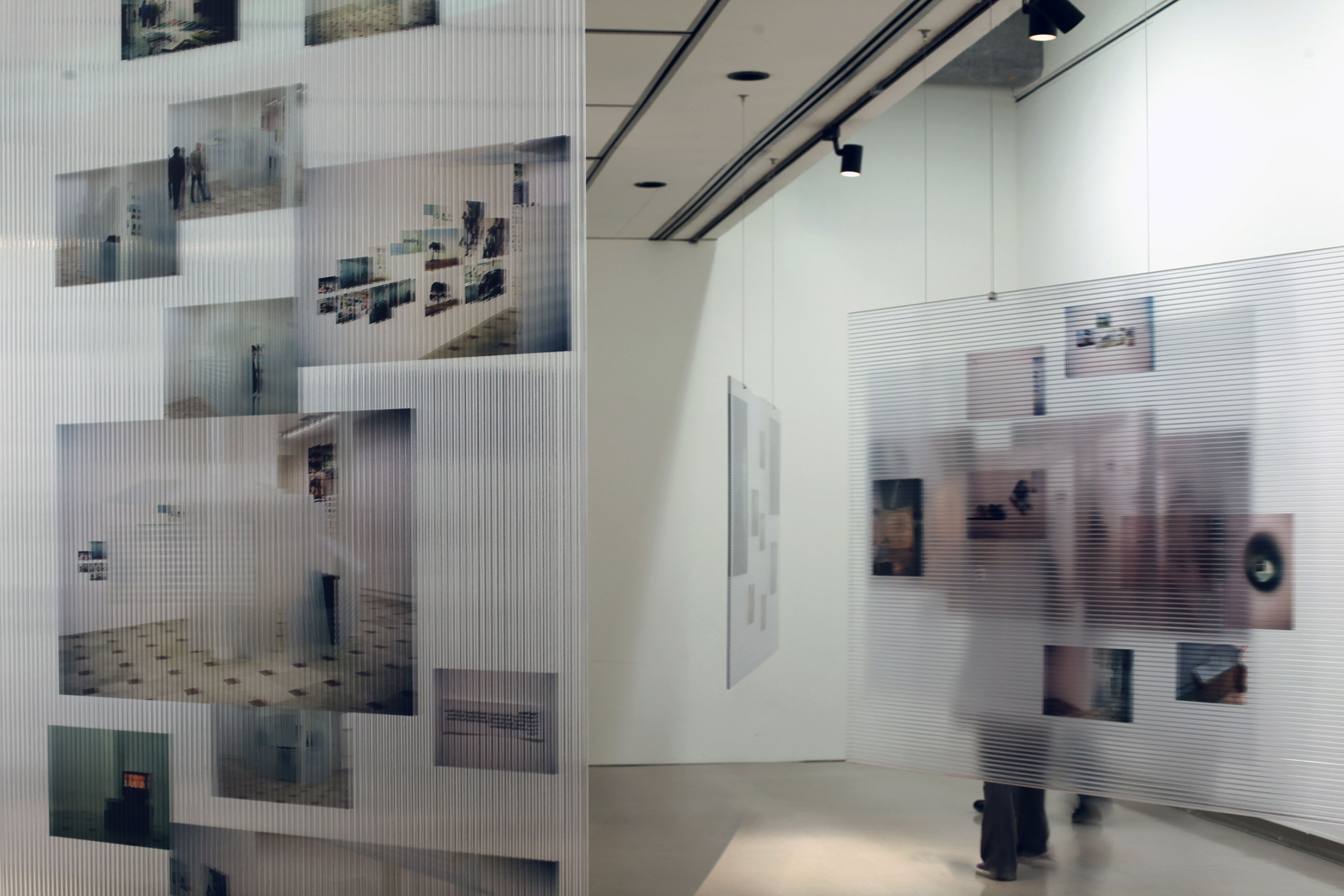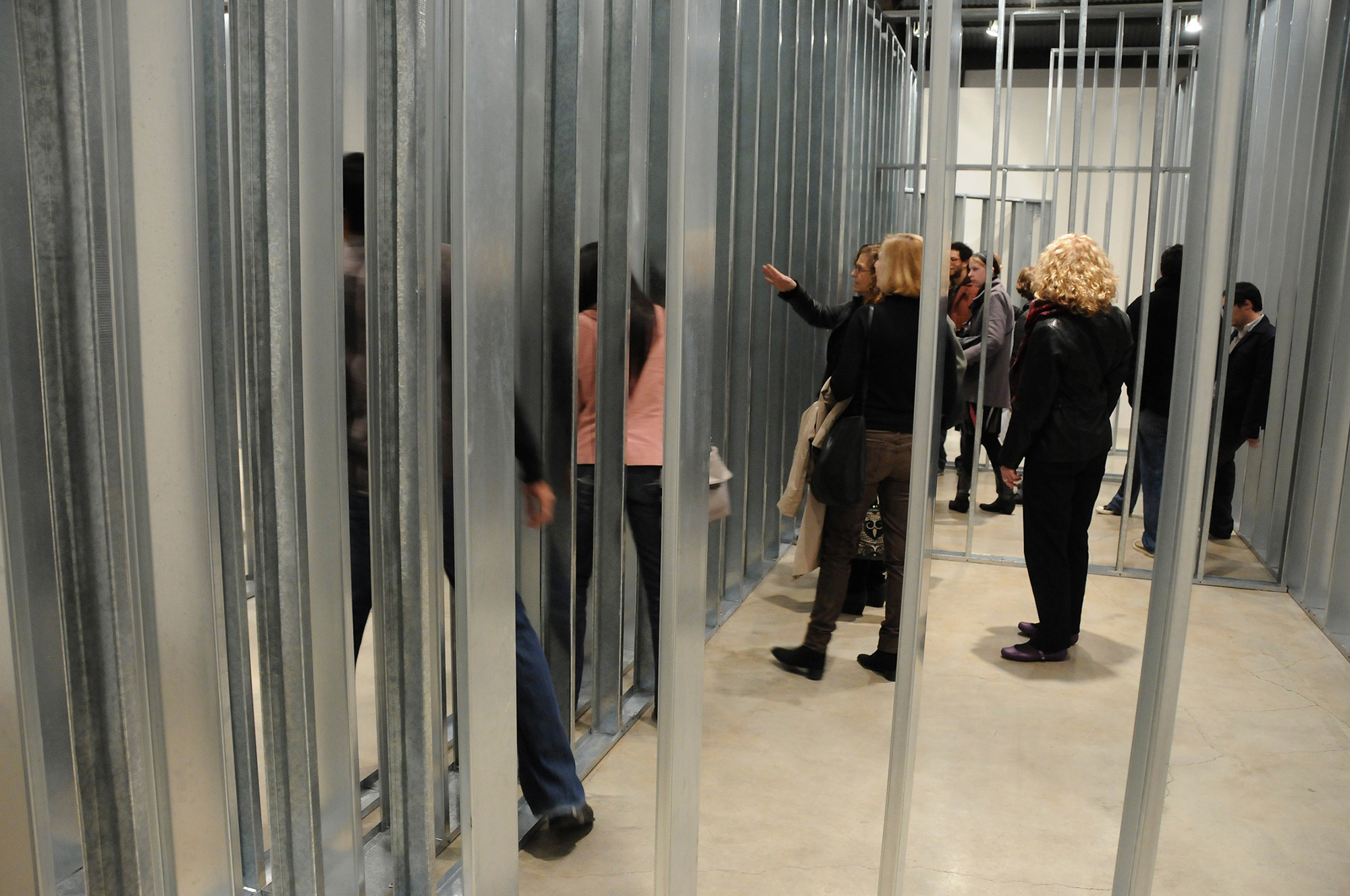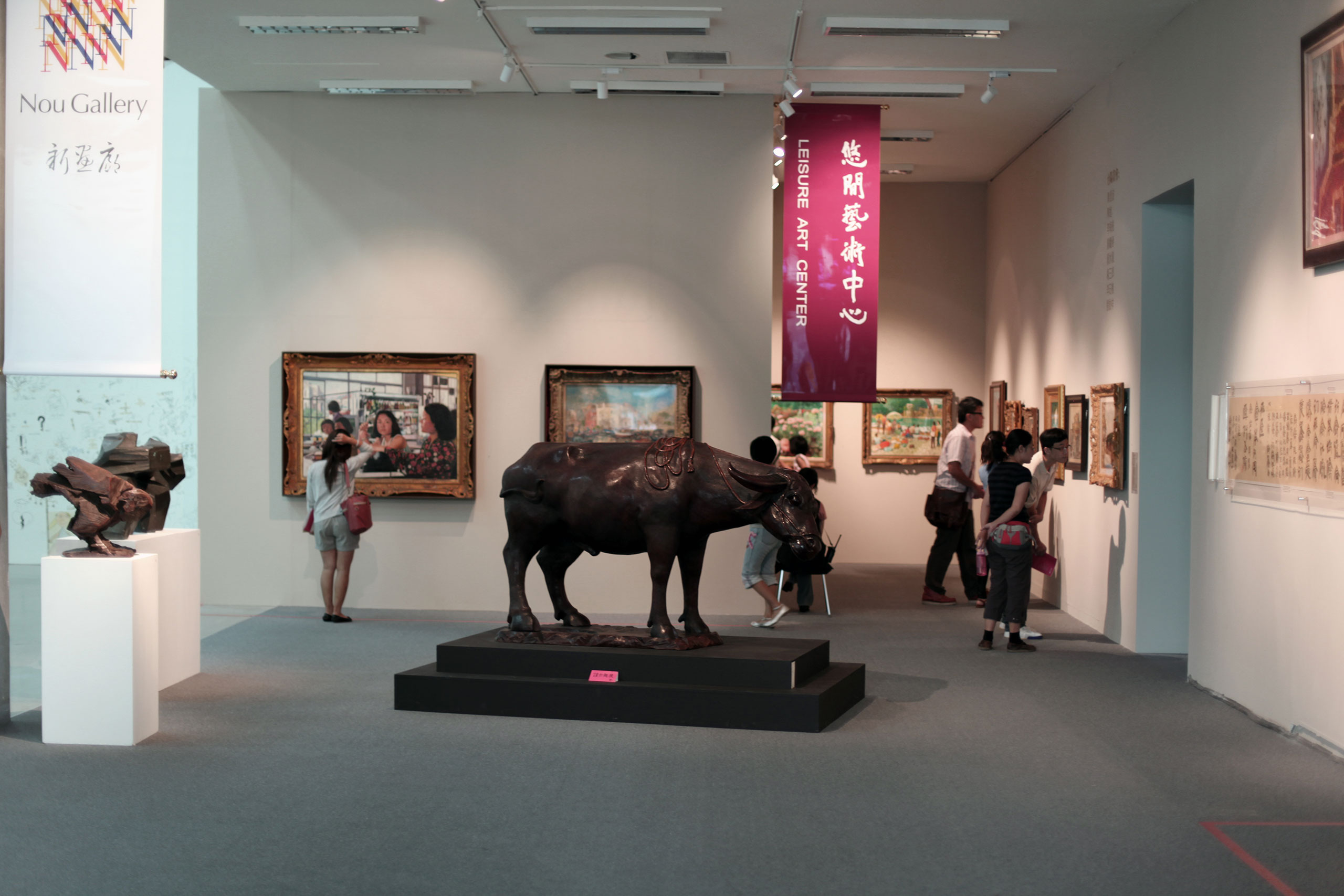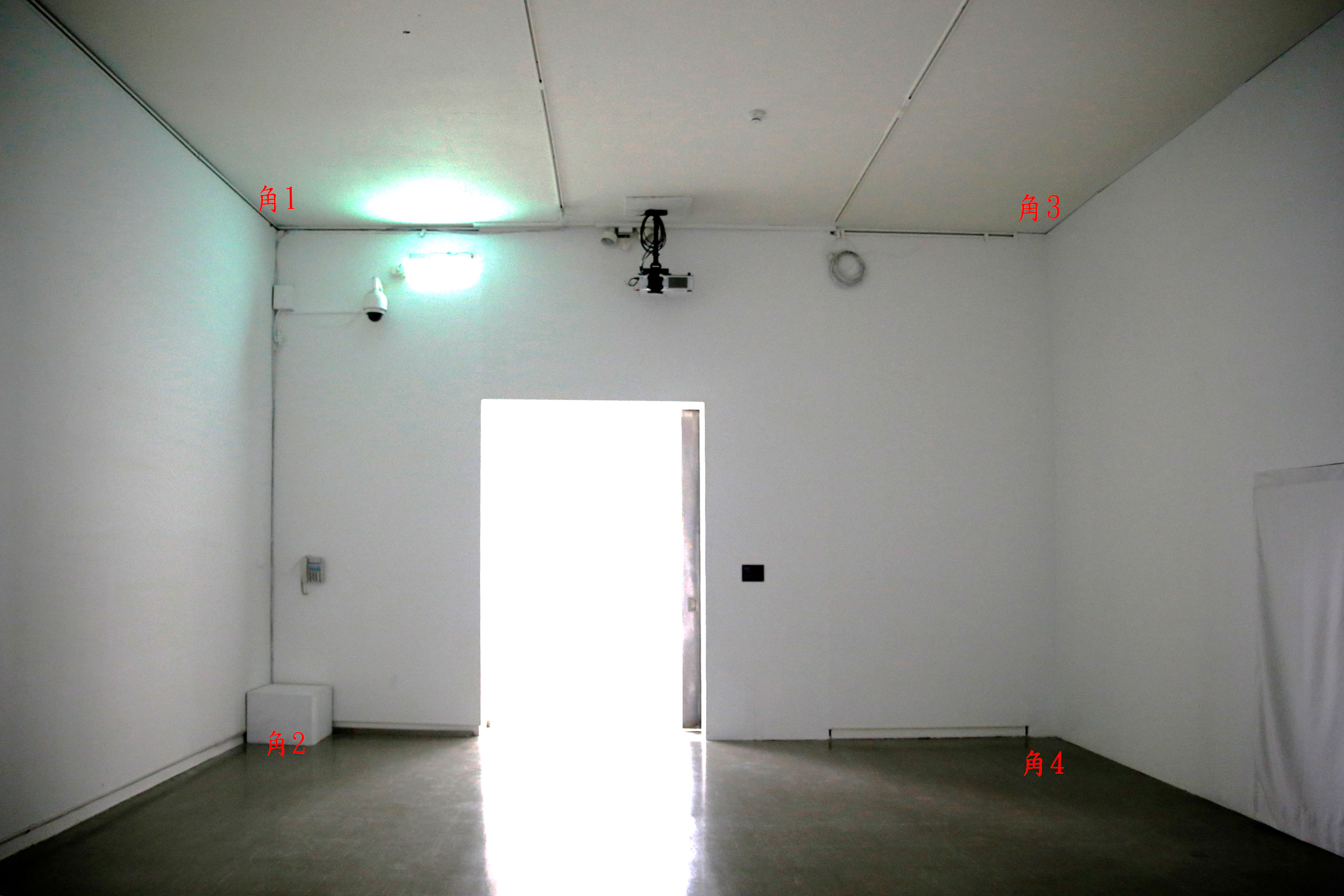Exhibition Amnesia
In today’s curatorial culture, the desire to mount a newly sensational exhibition is so strong that past exhibitions are often neglected and forgotten. For any exhibition, we are always looking for something novel, original, and, better yet, unprecedented. It is true that there is a plethora of exhibitions in countless settings-museums, galleries, art fairs, community interventions, and biennials-and not to mention that the expanding field of exhibitions is turning from the physical to the virtual. Both spectators and art communities eagerly await the next exhibition, as much as social media feverishly fabricates memories of the flashy fifteen minutes of fame on the web, all too soon to be forgotten. We are living in the age of the hyper-metabolism of memory, as everything needs to go viral and then wane quickly, even speedier than fashion trends. The more exhibitions proliferate, the fewer spectators can remember what they have seen. The ideology of the exhibition promotes exhibition amnesia, emphasizing attention to the new and neglecting the old, as every opening of an exhibition closes a gate to the past. The white cube serves to whitewash the memory of what was before, replacing it with interior installations surrounded by sheetrock walls. Exhibition spectatorship can only be satisfied with the novel, the happening, and the up-to-the-minute, while past exhibitions can at best serve as references that can easily become obsolete and forgotten. However, many contemporary art practices are pitted against the exhibition amnesia that most spectatorship is accustomed to.
Exhibition amnesia can be attributed to geopolitical positions as well as ethnic marginality, reflecting the impossibility of defining the epistemological boundaries of the subject, as in recent Issue 9, Curating Against Forgetting. Amnesia becomes a cultural symptom, operating through power apparatuses that assign subjective positions and dispositions. The epistemicide of knowing one’s history occurs due to peripheral situations, as many regions in the South constantly struggle to remember political traumas, natural disasters, military coups, and so on. The same holds true for the indigenous sociocultural position, which marks subjective marginality and has long been oppressed, manipulated, fetishized, and appropriated, resulting in cultural aphasia-the inability to express oneself using one’s own language or even to pronounce one’s proper name. The episteme of the others always refers back to the apparatus of art, in which dominant powers play the leading role in determining what and how we shall know and show as works of art.
Turkish artist Can Altay presented the project, Normalization Part 1, 2, and 3, at the 2010 Taipei Biennial. Building on the 2005 group show titled “Normalization” in Istanbul, Altay’s project accumulated documentation of all the works that participated in the Istanbul group show and of the previous works exhibited in the museum gallery in Taipei. These documentations were mounted on semi-translucent acrylic boards, allowing them to be seen vaguely. Therefore, Altay condensed these shows into a single installation through which he constructed the memory of the diachronic exhibitions, reminding us of the ideology of exhibitions that were usually naturalized and hidden within the gallery space. Altay’s works revealed the logic of biennialism, wherein a work of art can travel from one city to another, to mix with other works without the pretext of the exhibiting history, serving as a reminder that amnesia is a part of the “normalization” of exhibition-making. By bringing forth the context of the previously exhibited work, Altay conveys that no exhibition can stand alone without forgetting the history of art installed in the same room. Therefore, exhibition amnesia is a necessary part of any curatorial apparatus.

Indeed, Altay’s work can be seen as having similar approaches to the art of institutional critique, as defined by Peter Burger. This approach encompasses not only the superstructure of aesthetic theories but also the social and physical institutions – such as schools, universities, academies, museums, galleries, and so on – that shape the function of artworks, which are generally considered aesthetic objects and commodities. Burger believes that various mediating cultural agents, such as art criticism, art histories, or art magazines and newsletters, can influence the superstructure for both professionals and the public. For institutional critique art, Michael Asher’s conceptual projects have sought to investigate dimensions of the institutions of art. His projects ranged from shifting a statue of George Washington from a pedestal outside the Art Institute of Chicago into the museum’s 18th-century galleries to placing a camping trailer in various sites around the city of Münster for Skulptur Projekte. Asher’s work reveals the ideology of the “white cube” through his interventions in architectural spaces, with his critiques being reflexive and site-specific, often utilizing the existing infrastructure within the exhibition space. For instance, his project for the Santa Monica Museum of Art in 2008 consisted of a maze of mainly metal studs, reconstructing the temporary walls built for the museum’s 44 exhibitions since 1998. In addition, Asher also created a documentation room in an adjacent gallery so that visitors could see a concise historical map of exhibition construction over a decade, including each of the 38 exhibitions floor plans. In other words, the white cube has been stripped bare to reveal its skeletons, shedding light on the labor and materials involved in processing exhibitions, which can always be forgotten, as these studs are the hidden “framework” of 44 exhibitions over ten years. Asher’s speculative work, when viewed from today’s perspective, remains relevant to various contemporary curatorial practices, encompassing aspects of institutional critique (new institutionalism), performativity, criticality, and the expanded field.

Speculative curating is defined in relation to the curatorial narrative of the fictional, wherein imaginary content can emerge and be presented as “what-if” scenarios. In line with what Donna Haraway terms speculative fabulation, a collective way of collectively creating imaginary narratives, speculative curating generates virtual content that frames the memory and the forgetting of exhibition mechanisms.1 This concept overlaps with institutional critiques, which have gained popularity in crafting stories and conducting experiments in major museums and biennales. Therefore, speculative curating heavily relies on exhibition amnesia, which becomes the “framework” for art containing real aesthetic qualities that can be approached but not directly accessed.2
One such approach can be observed in the work of Taiwanese artist Shi Jinhua, titled Index to the Moon. This work continues from the 2010 Taipei Biennale titled Museum Space for Rent, in which a museum space was offered for lease to a commercial gallery. Shi presented documentation of the empty gallery in a Taipei art gallery. Shi auctioned a portion of the space located in Room 103 on the first floor of the Taipei Fine Arts Museum at that time and used the proceeds as material fees for the production of artworks. After six months, the exhibition was taken down, and Shi returned to the empty gallery to shoot a video with voiceover providing a guided tour of the previous exhibition. Shi’s Index to the Moon an allusion to the Zen classics in the 16th century, interrogated the apparatus of art in which works of art circulate, are presented, accumulate, are consumed, and are produced. It made transparent the political economy of art, which encompasses social relations and linguistic aspects. The apparatus of art means not just the institutions of art that seek correlations with social institutions in terms of aesthetic ideology. Although these two can overlap in some areas, the latter historically emphasizes the construction of the public sphere and the museum system as they both grew in the late 18th century, while the former, the apparatus, stresses the notion of authority in the Foucauldian notion of power in relation to subjectivity.


Giorgio Agamben’s thoughts in What is an Apparatus? provide invaluable insights into closely reading the term “apparatus” (dispositif in French), as Foucault sometimes used it in the context of the “deployment of sexuality and kinship,” or later in the mid-1970s, when he referred to “governmentality” or the “government of men.” While Louis Althusser’s “state apparatuses” often rely on the crude distinction between ideology and its determinant structural causes, and are therefore much closer to the notion of social institutions, Agamben, instead, sheds light on the critical path of dispositif tracing it back to Hegel’s “positive,” as noted by Foucault’s teacher, Jean Hyppolite. Recognizing the apparatus as necessary for both subjectification, such as in repression as power, and as an object for critique, Agamben draws insights from Foucault’s interview in 1977, as follows:
It is a heterogeneous set that includes virtually anything, linguistic and nonlinguistic, under the same heading: discourses, institutions, buildings, laws, police measures, philosophical propositions, and so on. The apparatus itself is the network that is established between these elements.3
Consequently, the apparatus is consistently intertwined with power dynamics, while also being connected to specific boundaries of knowledge, the episteme, both stemming from and conditioning it. In essence, the apparatus can be defined as a set of strategies governing the relationships of forces fostered by particular forms of knowledge, serving as the primary function of language. Before the publication of Foucault’s Archeology of Knowledge and as mentioned by Agamben himself, Foucault’s The Order of Things already introduced the term “positivity,” particularly in the context of the representation of language and visuality in relation to subjectification, which appears notably in the opening chapter analyzing Diego Velázquez’s Las Meninas. The representation of language and the resemblance of visuality both index the position of subjects. Foucault originally intended to title the book “The Order of Things,” instead of the title suggested by the editor, “Les mots et les choses,” which later became the French title. Here, “order” should not only be viewed as a sorting of priorities or a ranking and classification but also as a regularity imposed by law and commandment. The subtitles of the books demonstrate Foucault’s unique use of “archeology,” which diverges from its conventional meaning and alludes to the aura of genesis, a genealogy of beginnings, starting the cause of “ancient things” (Greek: arkholios). Foucault outlines his intellectual task as follows:
(The Archeology) is rather an inquiry whose aim is to rediscover on what basis knowledge and theory became possible; within what space of order knowledge was constituted; on the basis of what “historical a priori”, and in the element of what positivity, ideas could appear, sciences be established, experience be reflected in philosophies, rationalities be formed, only, perhaps, to dissolve and vanish soon afterwards…. In this account, what should appear are those configurations within the space of knowledge which have given rise to the diverse forms of empirical science. Such an enterprise is not so much a history, in the traditional meaning of that word, as an “archaeology.”
Notice here that a Hegelian “positivity” is paired with a Kantian term, “historical a priori,” in understanding the genealogical cause. Instead of yielding to the transcendental aesthetics that lay the foundation of Immanuel Kant’s critiques, historical a priori is the first cause that organizes observable realities, defines variables for description, and constructs connections within a specific branch of knowledge, as Foucault writes, “it covers a series of complex operations that introduce the possibility of a constant order into a totality of representations. It constitutes a whole domain of empiricity as at the same time describable and orderable.”5 Archaeology is the archive of all knowledges and, henceforth, a priori of historicity, as positivity plays the role of a historical a priori.6 In the realm of what we now term biosphere, various inquiries existed beyond mere attempts at classification, as well as diverse forms of analysis that went beyond the examination of similarities and differences. These inquiries all had a foundation in what we can call a priori, granting them legitimacy in their wide-ranging and distinctive endeavors, allowing for the emergence of varying viewpoints. Foucault analyzes the emergence of biology and natural history from the historical a priori as the result of the existence of species and the transmission from different generations. While the historical a priori cannot be granted as universal truth, it must have its basis in the realm of direct experience, a posteriori, grounded in the cognitive principles that make language accessible. It is not a question of another transcendent world but of the conditions in accordance with which any representation of the world in general can exist. However, it is through Hegelian positivity, later termed by Foucault as dispositif and constructed as an element of the historical a priori, that such representations can then be accessed.
When Hegel wrote The Positivity of Christian Religion in 1795, it marked his transition from Kantianism during his time in Bern to the more dialectical Frankfurt period. During this transition, he criticized “practical reason,” which Kant advocated as the universal scientific truth for transcendental philosophy. Hegel believed that Christianity was a positive religion distinct from other folk religions. This distinctiveness stemmed from historical contingency, which originated from Jesus’ own authority as he spoke. In Hegel’s words, this authority emanated from “the lips of Jesus” and demanded faith in his doctrines and the law of the virtual for believers.7 This faith internalized itself within systems of beliefs operating through external factors such as church and other belief systems, such as superstition. Therefore, positivity represented an authority that functioned through language as part of the dialectical process of subjectification, a perspective that Kantian transcendental reason ultimately sidestepped.
Moreover, interpreting Hegel’s notion of positivity and its effects on internalizing imposed power, both Foucault and Agamben emphasize the centrality of economics in understanding human existence. Foucault observes that “The positivity of economics is situated within that anthropological hollow.”8 Instead of viewing economics solely as the principles of supply and demand in production and consumption, Foucault interprets an ontological economy in which Homo oeconomicus is a finite being dependent on finite resources, managing and governing all lives. Economics, in Foucault’s view, represents a dimension that lacks anthropological considerations in governing biospheres, as exemplified in deployment of power extended to areas such as madness, illness, imprisonment, and homosexuality. Comparatively, in Agamben’s view, the pairing of church history with oikonomia in the first century leads to the domestication of the world, administered and managed as a home (oikos). The “divine economy,” in his words, becomes an apparatus of positivity through which Trinitarian doctrines position the theological management of life, death, and the afterlife.9The notion of positivity continued into Heidegger’s concept of das Ge-stell-frame, framing, and framework.10 These two terms share a common Latin root, ponere, meaning to place, to set, to lay, and to posit.11 As we recall, for Heidegger, das Ge-stell signifies the potentiality of technology, which can bring both catastrophes and benefits to humans. Art is no different in its ability to position itself as a resource and material for human processing: technology and art both contribute to caring for the unfolding destiny of human existence, or in Heidegger’s words, “the-setting-into-work-of-truth,” through the arrangement of all forms of organizing things. The paradox of das Ge-stell, however, lies in the fact that the frame can be ignored and forgotten. We are often drawn to the picture-plane, just as the potentially destructive power of technology is overlooked in everyday reality. The, “-stellen,” the act of setting, placing, and positing is not only akin to the German Vor-stellen, meaning representation to giving resemblant forms but also entails a mode of order, poiesis, which allows what is present to emerge into the unconcealed as becoming. Seen from this perspective, exhibition-making in curatorial practice is nothing more than gathering, bringing forth, and the-setting-into-work-of-truth. Ge-stell captures the intricate dynamics of exhibition amnesia, exposing the boundary or frame between memory and forgetting, tradition and innovation, and power and subjugation. Paradoxically, it exists within the very structure, the apparatus of curating, that it creates a necessary mechanism deeply intertwined with the deployment of Foucauldian economic relations, where past exhibitions and their significance are easily dismissed. The apparatus of speculative curating signifies a discourse that extends beyond the art institutions and its social determinism. Therefore, it seems that today we need to go against the grain of the apparatus and employ a technology of re-framing to reveal the boundaries of the historical a priori that often remain hidden, risking the loss of collective memory.
We invited three prolific writers and curators to contribute to the concepts centered around apparatus, exhibition amnesia, and the epistemic field of curating for this issue of Curatography. Lin Chi Ming’s work discusses the relationship between the archive and curatorial knowledge as an initial proposal for establishing exhibition archives from the perspective of literary generative theory. Lin distinguishes between the physical exhibition and its textual representations, including catalogues, curatorial statements, artwork introductions, related research, and more. He emphasizes the need for solutions to effectively address the complexities of archive construction within the institutional context of exhibitions. Lin’s work explores the concept of healing and care within the curatorial process, all while remaining aware of the risk of succumbing to archive fetishism. Miya Yoshida’s work addresses the notion of the economy of attention in curatorial practice, drawing from her recent work, Listening to the Stones, Inspired by Simondon’s concept of “individuation” as a mode of ontological existence, Yoshida reevaluates attentional forms with different temporalities, framing speculative curating as the apparatus and architectonic structure of exhibition making. In today’s context of exhibitions, Yoshida seeks to employ poetics (poiesis) as a means to transform the exhibition experience’s evolution. Chen Taisung’s essay suggests that the state of contemporary exhibition-making can be likened to the Mise en abyme of representations, where the meta-language of art intensifies the conventional art language since postmodernism. This self-amnesia has evolved into an artistic strategy employed within the creative process by artists like Tehching Hsieh and Tino Sehgal. Paradoxically, it requires both spectators and even the artists themselves to forget, thus transforming art itself. This dual amnesia leads to an art form centered on disappearance rather than presence, where continuous absence becomes the essence of the exhibition. By sensing the exhibition’s almost unrecognizable boundaries, seen somewhat vaguely, this issue Exhibition Amnesia is equipped to bring forth the positivity within the ontological economy of curating. It is within these boundaries that the artwork carrying the potential for a moment of truth comes into view.
1 I am indebted to Haraway’s ideals, thinking of speculative curating not only as fantasy narratives, akin to science fiction, but also as a working relationship among curators, artists, and the public. Donna J. Haraway, Staying with the Trouble: Making Kin in the Chthulucene (Durham: Duke University Press, 2016) 11.
2 Similar to Object-Oriented Ontology, which holds that the essence of art cannot be directly accessed but can be approached, much like in Das Ge-stell, the frame. Graham Harman, Art and Objects (Cambridge: Polity Press) 28-29.
3 Giorgio Agamben, What is an Apparatus? And Other Essays, Trans., David Kishik and Stefan Pedatella (Stanford: Stanford University Press, 2009) 2-3.
4 Michel Foucault, The Order of Things: An Archaeology of the Human Sciences. Trans., A.M. Sheridan Smith (New York: Rutledge Classics, 1972) xxiii.
5 Michel Foucault, The Order of Things, 263.
6 Michel Foucault, The Archaeology of Knowledge and the Discourse on Language. Trans., A.M. Sheridan Smith (New York: Pantheon Press, 1972) 127.
7 Hegel 1795 (Berne) The Positivity of the Christian Religion, accessed Oct, 1st, 2023, https://www.marxists.org/reference/archive/hegel/works/pc/index.htm.
8 Foucault, The Order of Things, 280.
9 Agamben, What is an Apparatus?, 9.
10 Martin Heidegger, Poetry, Language, and Thoughts, Trans., Albert Hofstadter (New York: HarperCollins Books, 1971) 81.
11 Heidegger, Poetry, Language, and Thoughts, 84.
Share
Author
Hongjohn Lin is an artist, writer and curator. Graduated from New York University in Arts and Humanities with Ph.D. He has participated in exhibitions including Taipei Biennial(2004), the Manchester Asian Triennial 2008, the Rotterdam Film Festival 2008, and the 2012 Taipei Biennial, Guangzhou Triennial (2015), and China Asia Biennial (2014). Lin was curator of the Taiwan Pavilion Atopia, Venice Biennial 2007, co-curator of 2010 Taipei Biennial (with Tirdad Zolghadr), and numerous curatorial projects such as Taizhong’s The Good Place (2002) and Live Ammo (2012). Lin is serving as Professor at the Taipei National University of the Arts. For the past 10 years, he has been working on project based on George Psalmanazar, A fake Taiwanese in the early Enlightenment. He is interested in transdisciplinary arts, politics of aesthetics, and curating. His writings can be found in Artco magazine, Yishu magazine, international journals, and publications of Art as a Thinking Process (2010), Artistic Research (2012), Experimental Aesthetic(2014), Altering Archive: The Politics of Memory in Sinophone Cinemas and Image Culture (2017). He wrote the Introductions for Chinese edition of Art Power (Boris Groys) and Artificial Hells (Clair Bishop) . His books in Chinese include Poetics of Curating (2018), Beyond the Boundary: Interdisciplinary Arts in Taiwan, Writings on Locality, Curating Subjects: Practices of Contemporary Exhibitions.
Sponsor



